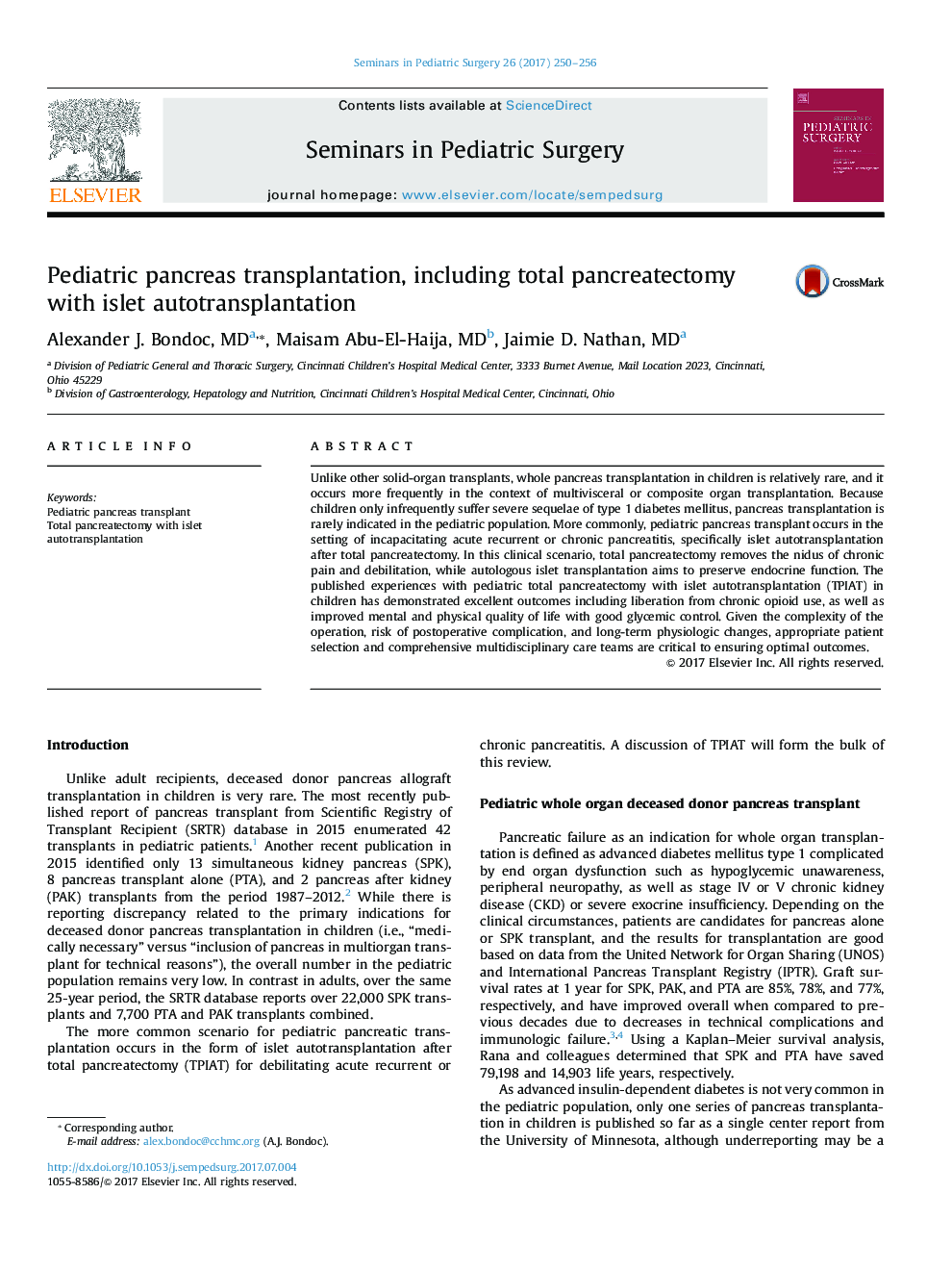| Article ID | Journal | Published Year | Pages | File Type |
|---|---|---|---|---|
| 5720288 | Seminars in Pediatric Surgery | 2017 | 7 Pages |
Unlike other solid-organ transplants, whole pancreas transplantation in children is relatively rare, and it occurs more frequently in the context of multivisceral or composite organ transplantation. Because children only infrequently suffer severe sequelae of type 1 diabetes mellitus, pancreas transplantation is rarely indicated in the pediatric population. More commonly, pediatric pancreas transplant occurs in the setting of incapacitating acute recurrent or chronic pancreatitis, specifically islet autotransplantation after total pancreatectomy. In this clinical scenario, total pancreatectomy removes the nidus of chronic pain and debilitation, while autologous islet transplantation aims to preserve endocrine function. The published experiences with pediatric total pancreatectomy with islet autotransplantation (TPIAT) in children has demonstrated excellent outcomes including liberation from chronic opioid use, as well as improved mental and physical quality of life with good glycemic control. Given the complexity of the operation, risk of postoperative complication, and long-term physiologic changes, appropriate patient selection and comprehensive multidisciplinary care teams are critical to ensuring optimal outcomes.
